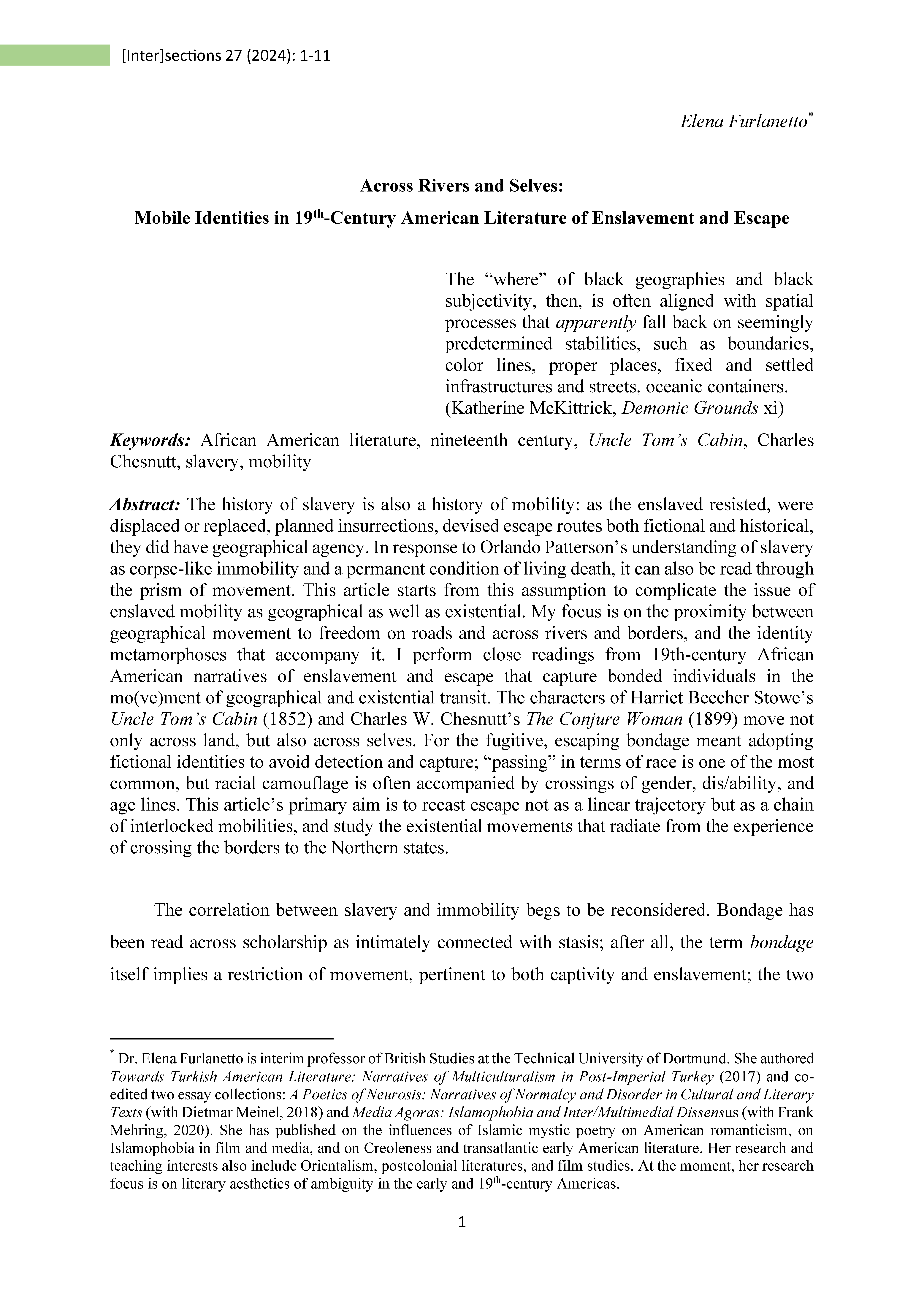Across Rivers and Selves: Mobile Identities in 19th-Century American Literature of Enslavement and Escape
DOI:
https://doi.org/10.31178/INTER.13.27.1Cuvinte cheie:
African American literature, nineteenth century, Uncle Tom’s Cabin, Charles Chesnutt, slavery, mobilityRezumat
The history of slavery is also a history of mobility: as the enslaved resisted, were displaced or replaced, planned insurrections, devised escape routes both fictional and historical, they did have geographical agency. In response to Orlando Patterson’s understanding of slavery as corpse-like immobility and a permanent condition of living death, it can also be read through the prism of movement. This article starts from this assumption to complicate the issue of enslaved mobility as geographical as well as existential. My focus is on the proximity between geographical movement to freedom on roads and across rivers and borders, and the identity metamorphoses that accompany it. I perform close readings from 19th-century African American narratives of enslavement and escape that capture bonded individuals in the mo(ve)ment of geographical and existential transit. The characters of Harriet Beecher Stowe’s Uncle Tom’s Cabin (1852) and Charles W. Chesnutt’s The Conjure Woman (1899) move not only across land, but also across selves. For the fugitive, escaping bondage meant adopting fictional identities to avoid detection and capture; “passing” in terms of race is one of the most common, but racial camouflage is often accompanied by crossings of gender, dis/ability, and age lines. This article’s primary aim is to recast escape not as a linear trajectory but as a chain of interlocked mobilities, and study the existential movements that radiate from the experience of crossing the borders to the Northern states.





